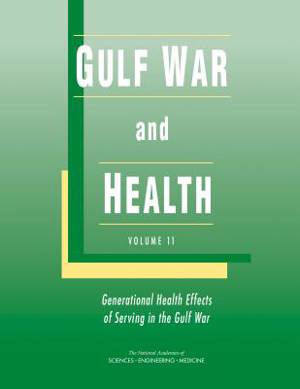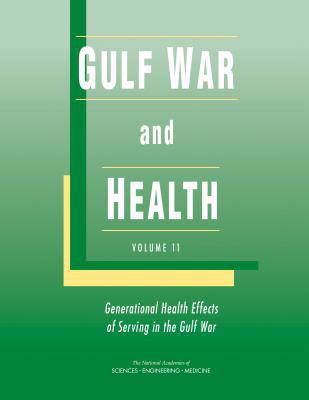
- Afhalen na 1 uur in een winkel met voorraad
- Gratis thuislevering in België vanaf € 30
- Ruim aanbod met 7 miljoen producten
- Afhalen na 1 uur in een winkel met voorraad
- Gratis thuislevering in België vanaf € 30
- Ruim aanbod met 7 miljoen producten
Gulf War and Health
Volume 11: Generational Health Effects of Serving in the Gulf War
National Academies of Sciences Engineering and Medicine, Health and Medicine Division, Board on Population Health and Public Health Practice, Committee on Gulf War and Health Volume 11 Generational Health EOmschrijving
For the United States, the 1991 Persian Gulf War was a brief and successful military operation with few injuries and deaths. However, soon after returning from duty, a large number of veterans began reporting health problems they believed were associated with their service in the Gulf. At the request of Congress, the National Academies of Sciences, Engineering, and Medicine has been conducting an ongoing review of the evidence to determine veterans' long-term health problems and potential causes.
Some of the health effects identified by past reports include post-traumatic stress disorders, other mental health disorders, Gulf War illness, respiratory effects, and self-reported sexual dysfunction. Veterans' concerns regarding the impacts of deployment-related exposures on their health have grown to include potential adverse effects on the health of their children and grandchildren. These concerns now increasingly involve female veterans, as more women join the military and are deployed to war zones and areas that pose potential hazards.
Gulf War and Health: Volume 11 evaluates the scientific and medical literature on reproductive and developmental effects and health outcomes associated with Gulf War and Post-9/11 exposures, and designates research areas requiring further scientific study on potential health effects in the descendants of veterans of any era.
Specificaties
Betrokkenen
- Auteur(s):
- Uitgeverij:
Inhoud
- Aantal bladzijden:
- 518
- Taal:
- Engels
Eigenschappen
- Productcode (EAN):
- 9780309478236
- Verschijningsdatum:
- 20/01/2019
- Uitvoering:
- Paperback
- Formaat:
- Trade paperback (VS)
- Afmetingen:
- 213 mm x 277 mm
- Gewicht:
- 1451 g

Alleen bij Standaard Boekhandel
Beoordelingen
We publiceren alleen reviews die voldoen aan de voorwaarden voor reviews. Bekijk onze voorwaarden voor reviews.











